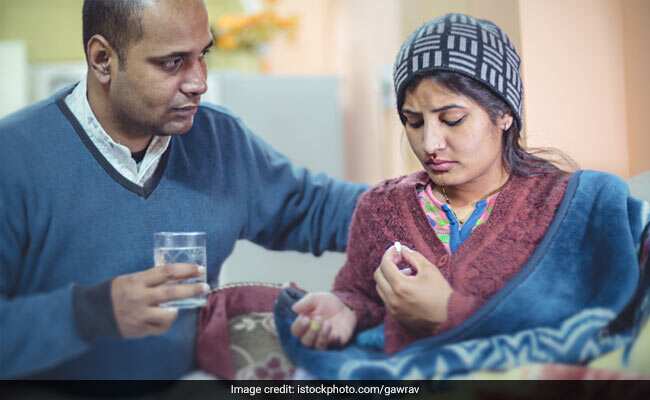In general, the treatment of RA is for long periods of time and may be for the life time of the patient, just like in diabetes or blood pressure.

Patient adherence improves the outcome or results of treatment for RA
Rheumatoid Arthritis (RA) is an autoimmune disease in which the body's immune system mistakenly attacks the joints, instead of offering protection from disease and foreign substances like bacteria and viruses. The disease is marked by inflammation that thickens the tissue that lines inside of the joints. This results in pain and swelling in and around the joints. Early diagnosis and treatment is the key to managing RA. In case RA and inflammation in joints goes unchecked, it can cause damage to cartilage and the elastic tissue which covers ends of bones in joints. Over a period of time, undiagnosed and untreated RA can lead to deformities, loss of cartilage and smaller joint spacing between bones.
We spoke to Dr Rohini Handa, Senior Consultant Rheumatologist at Apollo Indraprastha Hospitals, about the importance of treatment adherence in RA. Following are the excerpts from an email interview.
1. Briefly explain what is rheumatoid arthritis and what causes it?
RA is an 'autoimmune' arthritis where the body's immune system malfunctions resulting in the person mounting an attack against his or her own joints. It is not caused by dietary deficiency or infectious agents. Patients experience pain, swelling and stiffness in multiple joints. Women are affected more than men.
2. What is the first treatment that is required for RA (during the time of diagnosis)?
The treatment of RA involves the use of drugs called disease modifying anti rheumatic drugs (DMARDs). These are divided into several categories like conventional synthetic DMARDS, targeted synthetic DMARDS and biologics. In addition, corticosteroids are used in some patients. Pain relief is obtained by the judicious use of anti-inflammatory drugs (pain killers). The dosage and combination of the drugs is determined by the treating rheumatologist based on several factors and varies from patient to patient, and even at different times in the same patient.
Regular exercises, adequate calcium and vitamin D, avoidance of stress, cessation of smoking, and strong family support go a long way in managing RA. Above all, a positive outlook is very important."

Dr. Rohini Handa
Senior Consultant Rheumatologist, Apollo Indraprastha Hospitals, Delhi3. Why is treatment adherence important for management of RA?
In general, the treatment of RA is for long periods of time and may be for the life time of the patient, just like in diabetes or blood pressure. Treatment decisions in chronic diseases like RA are always made by the doctor and patient collectively. Escalations and de-escalations are made based on periodic assessment by the rheumatologist. Patient adherence improves the outcome or results of treatment. Regular monitoring helps avoid drug side effects. Hence, patient awareness and participation are the key pillars of successful treatment in RA.
4. Can RA be cured with proper treatment? Explain.
Currently existing treatments for RA are suppressive and can control the disease effectively. However, true cure for RA is not available at present. Thus, long term treatment is the norm. Many patients can look forward to a state of low disease activity or remission. A few go into a state of 'drug free' remission, where the arthritis is under control despite stoppage of drugs. Most patients can look forward to reasonable disease control with good quality of life.
5. What are the lifestyle changes required to manage RA in the long run?
Regular exercises, adequate calcium and vitamin D, avoidance of stress, cessation of smoking, and strong family support go a long way in managing RA. Above all, a positive outlook is very important. RA is eminently treatable. The newer treatments have ushered in an era of therapeutic optimism in this field!
(Dr Rohini Handa is Senior Consultant Rheumatologist at Apollo Indraprastha Hospitals)
Disclaimer: The views/opinions expressed within this article are the personal opinions of the author. NDTV is not responsible for the accuracy, completeness, suitability, or validity of any information on this article. All information is provided on an as-is basis. The information, facts or opinions appearing in the article do not reflect the views of NDTV or Eli Lilly and they do not assume any responsibility or liability for the same.
DoctorNDTV is the one stop site for all your health needs providing the most credible health information, health news and tips with expert advice on healthy living, diet plans, informative videos etc. You can get the most relevant and accurate info you need about health problems like diabetes, cancer, pregnancy, HIV and AIDS, weight loss and many other lifestyle diseases. We have a panel of over 350 experts who help us develop content by giving their valuable inputs and bringing to us the latest in the world of healthcare.














